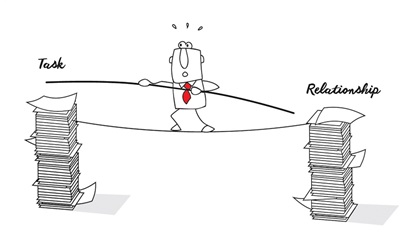"Bureaucracy is not a Bad Word"
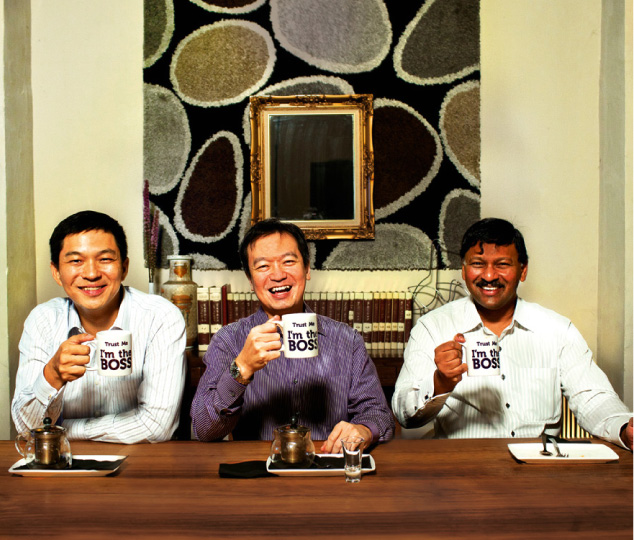
Three men, who knew each other through school or playing football, with different opinions and experiences across Ministries, all with one common passion: the calling to provide great public service.
In conjunction with Public Service Week celebrations in May, the discussion kicked off with values and whether there is even a common culture.
“Culture varies even within an organisation – division to division, department to department. What is more important is – what are the core principles and key values that drive us? The idea that we are in public service is very important,” said Deputy Secretary (Health) Roy Quek.
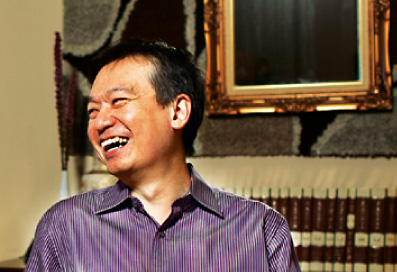
These younger-generation leaders, all in their 40s, have obviously thought long and hard about these issues.
Mr Quek has been behind policy-making in Ministries as diverse as Education; Defence; Community Development, Youth and Sports; and the Prime Minister’s Office. Mr Raja Kumar is Senior Assistant Commissioner of Police on secondment to head the Casino Regulatory Authority as Chief Executive. Brigadier-General Tan Chuan-Jin, a career army officer who, at the time of interview was still in Mindef, was behind missions to places such as Meulaboh during the 2004 tsunami.
“It’s a crucial service in that there is only a single source providing it. There lies the challenge – you’ve got to make sure the standards are there,” said Mr Raja Kumar.
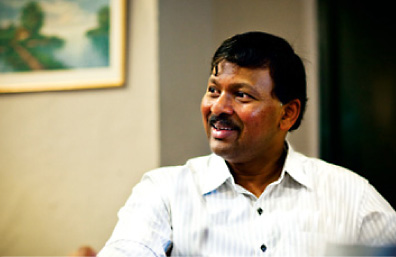
And he is in the hot seat in establishing standards, with the eyes of a new industry squarely trained on him and his officers, as issues like gambling addiction come up with the casinos opening.
Even as these men focus on the big picture, they realise the devil is in the details. “I always find it useful to take a few steps back and ask the fundamental questions of why we are doing what we are doing,” added BG Tan.
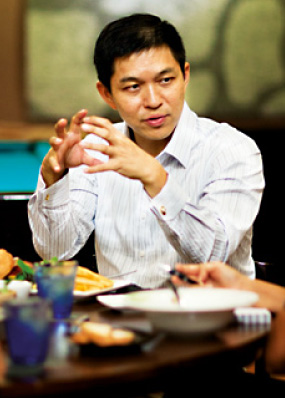
Not surprisingly, they have their own rules for dealing with the many issues that come their way.
“My mantra is not to do the things that have been done just because it’s been done. But to do the things that are right and make sense there and then,” said Mr Quek.
“When I was in charge of population work, for the longest time, people used to ask how many Singaporeans renounce citizenship each year. As it was never revealed, it became a source of mystery and wild speculation. Yet, the actual numbers were very small, and renunciations were common in all countries. So I went to ‘irritate’ some people and said ‘Why don’t we release it?’. Today, it’s been a few years since we first released the figures and no one asks about this issue anymore, end of mystery.”
All it took was a colourful remark to have all three roaring with laughter. Mr Raja Kumar related what happened when his family purchased a puppy advertised for sale from a friend with only a small “ang pow” exchanging hands.
When it was time to get a license for the puppy at the Agri-food and Veterinary Authority (AVA), the counter staff needed proof of purchase and a paper trail. In a fix, his wife explained the situation and got the licence without further hassle.
“We were pleasantly surprised... when someone has been empathetic and attentive to your particular circumstances, that stands out as great customer service.”
But for every case like that, BG Tan pointed out many more bureaucrats who are “just following the rules, missing the spirit of it, not prepared to make decisions at various levels, which is also intensely frustrating at times because it seems so glaringly obvious.”
He added that first, it is important to have clarity of purpose. From there, out-of-bounds (OB) markers are laid and staff then have freedom to make decisions within these boundaries.
At the SAF, he was there to shield “his guys” and take responsibility if something went wrong. Leaders who come down on staff like a “ton of bricks” instead could send the wrong message in an already prevalent “fear of failure culture”.
Still, as the Public Service has grown, has that dreaded B word – Bureaucracy – also grown?
“Bureaucracy is not a bad word. It’s how you apply it,” said BG Tan, stressing the need to temper it with flexibility. “Bureaucracy, blindly executed, becomes a weakness.”
With public officers numbering 120,000, all three are realistic about expecting each one to exercise flexibility.
Serving up a reality check, BG Tan pondered: “Are we stuck in an ivory tower where we think we are solving this intellectually but missing some angles?”
“Some blogs are worth reading. You may not agree with their points but they are well-articulated. But sometimes we take this attitude ‘what do they know?’. There are smart, well-meaning people out there. It probably pricks your ego because they are challenging you but perhaps there is some basis.

We’re about active citizenry and then, when citizens are active, do you listen and take it in – or not? So, we are kind of schizophrenic at times.”
Challenge puts the men in the hot seat and asks for rapid-fire responses to some basic questions.
Pet Peeve- BG Tan Chuan-Jin: “We forget why we are doing this”
- Raja Kumar: “Poor quality work, and not taking pride in one’s work"
- Roy Quek: “Lousy bosses – not just in the Civil Service, anywhere”
- BG Tan Chuan-Jin: “Develop leaders better”
- Raja Kumar: “Even more flexibility in the system”
- Roy Quek: “The much-heralded training in Public Service – can be better”
- BG Tan Chuan-Jin: “Generally we have good people”
- Raja Kumar: “Much better systems and processes”
- Roy Quek: “That someone like me can still be around”
- Unanimous: “Making a difference”
Agreeing, Mr Quek pointed to one weakness. “We believe we have crafted the best policies. But the inability to make ourselves better-understood and to respond quickly when things don’t turn out as well as on paper – that’s one gap. Because we are used to a top-down approach – even today.”
Mr Raja Kumar pointed out two major changes that make good public service even more challenging – complexity and trust.
“Increasingly, we are dealing with issues of tradeoffs and these are difficult to explain because it is very often a judgment call what sort of tradeoff that you, as a society, are prepared to accept.”
“There is also a lot less trust in establishments now than any other time you can think of. If you just think of institutions in the past that were held in high regard, for example, the banking sector whom our parents and grandparents trusted whole-heartedly because the name carried so much credibility and a reservoir of trust and goodwill, the government’s job is harder now because people have less trust in institutions.”
There appears to be a lot more questioning today. And the groundswell is growing.
“Dialogue in Internet space will increase exponentially. There are many intelligent people out there who can look and analyse and give their two cents’ worth. There, you are competing with an idea,” added BG Tan. The question is – which idea will carry the ground?
As the job and environment have changed, so too has the type of young officer today. CRA’s Raja Kumar shared: “I always ask why they want to join the service and this is what I hear. They talk about the stability it offers and some say it invests in people. But I would rather hear them talking of coming into the public sector to serve… For me, it’s more a calling than a job.”
But, as MOH’s Roy Quek noted, it is not a lost cause – yet. “Every passing generation feels the younger ones are impatient. If they are prepared and willing to give us a shot and not go directly into banking, we have a chance and can help them to be inspired by what it means to be a public servant in Singapore today.”
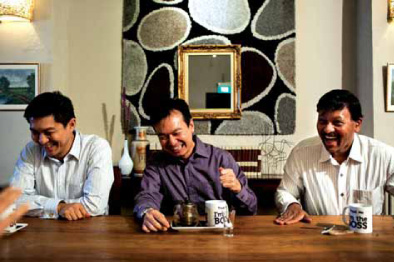
What’s usually in your cuppa?
BG Tan Chuan-Jin: Coffee & Milo or green tea
Raja Kumar: Coffee
Roy Quek: Plain water
What’s your favourite type of coffee?
BG Tan Chuan-Jin: Mocha – I mix my coffee & Milo
Raja Kumar: Kopitiam kopi
Roy Quek: I don’t drink coffee or tea
Where do you normally go to get your caffeine fix?
BG Tan Chuan-Jin: I make my own mocha at home and in the office, my secretary makes my green tea
Raja Kumar: Killiney Kopitiam
Roy Quek: I don’t; caffeine keeps me up all night! My PA puts a flask of water on my table each morning
- POSTED ON
May 9, 2011
- TEXT BY
A Makwana
-
Work Better
Reframing Tension as an Opportunity to Engage
-
Work Better
Dealing with Inter-Generational Conflict








